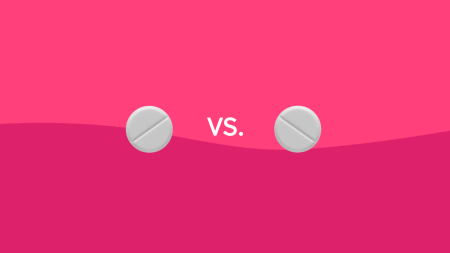Appetite Stimulants: 9 Medications That Make You Want to Eat
Certain health conditions — like cancer and human immunodeficiency virus (HIV) — can take a toll on the appetite. Pain, trouble swallowing, and medication side effects are common reasons that it can be challenging to eat if you have one of these conditions
If you or a loved one are experiencing unwanted weight loss because of a health condition, you may be wondering about ways to get your appetite back. Medications aren’t the only option, but they can come in handy if the time comes.
Megestrol (Megace ES), dronabinol (Marinol, Syndros), and oxandrolone are a few examples of prescription appetite stimulants. But there are several more available, so it’s good to keep your options in mind. Below, we discuss nine appetite stimulants in detail.
1. Megestrol
Megestrol is an FDA-approved medication used to stimulate appetite and to manage cachexia (wasting away of muscle and fat) in adults with acquired immunodeficiency syndrome (AIDS). A lab-made form of progesterone, it’s not completely known how megestrol stimulates appetite. But if your healthcare provider suggests it for you, the recommended dosage of megestrol depends on what formulation you’re taking, as shown in the chart below.
Dose | Starting dosage |
125 mg per mL | 625 mg (5 mL) by mouth per day |
40 mg per mL | 800 mg (20 mL) by mouth per day |
Megestrol is also sometimes taken off-label as an appetite stimulant for people with cancer. But there is mixed information about whether there is a meaningful benefit for people living with advanced cancer.
Megestrol is not the best option for everyone. Pregnant women, for example, should avoid taking megestrol, since it could harm the fetus. And megestrol can raise the risk of blood clots. So you should seek medical attention right away if you experience signs of a blood clot — like sudden pain or swelling in your arm or leg, chest pain, or trouble breathing — while taking it.
2. Dronabinol
Dronabinol is another FDA-approved appetite stimulant for adults with AIDS. Studies suggest dronabinol can increase body weight by about 2 kg to 3 kg (4 lbs to 7 lbs) in people who have HIV/AIDS. A lab-made version of delta-9-tetrahydrocannabinol (THC), it is also used to treat nausea and vomiting related to chemotherapy.
Depending on your needs and preferences, you can take this medication as a capsule (Marinol) or oral solution (Syndros). Both medications are taken 2 times a day, 1 hour before lunch and dinner.
Like any medication, dronabinol can cause side effects, which are helpful to know about. Stomach pain, dizziness, and paranoia are a few examples. It’s also a controlled substance because it has a potential to cause dependence and misuse.
3. Oxandrolone
Oxandrolone is an anabolic steroid that acts like an appetite stimulant. It’s sometimes used to promote weight gain in adults and kids following weight loss from certain situations — including after surgery, from an infection, or from certain medications. Oxandrolone increases body weight by promoting muscle growth.
There are some serious oxandrolone side effects to be aware of. The medication carries a boxed warning — the FDA’s most serious warning — about the risk of liver injury and increased lipid levels. And like dronabinol, oxandrolone is a controlled substance because of the risk of dependence and misuse.
UPDATED NOTE: In late June 2023, the FDA withdrew its approval of oxandrolone. It's no longer available in the U.S.
4. Antidepressants like mirtazapine
Mirtazapine (Remeron) is FDA approved to treat depression in adults. Two of the most common side effects of this atypical antidepressant are appetite changes and weight gain.
While these side effects usually aren’t ideal, some people opt to take advantage of them by taking mirtazapine off-label as an appetite stimulant. The medication is even being studied in clinical trials as an appetite stimulant for people with cancer. The dosage taken in these studies ranges from 7.5 mg to 30 mg per day by mouth.
Several other antidepressants — including paroxetine (Paxil), a selective serotonin reuptake inhibitor (SSRI) — can also cause weight gain. Tricyclic antidepressants like amitriptyline and nortriptyline (Pamelor) are among them.
5. Corticosteroids like prednisone
Weight gain is a common side effect of corticosteroids. But it’s more likely to occur with higher doses and long-term use.
Weight gain from corticosteroids can happen for a few reasons. Corticosteroids can cause fluid buildup, which can lead to weight gain. They also mimic the hormone cortisol in the body. At high levels, cortisol can cause you to eat more, and it can also change how your body processes sugar and fats.
For these reasons, corticosteroids can be used off-label as appetite stimulants for people with cancer. Dexamethasone is a common choice, but prednisolone and methylprednisolone (Medrol) have also been studied as appetite stimulants.
6. Antihistamines like cyproheptadine
Cyproheptadine is an antihistamine that treats allergies. But it’s also sometimes used off-label as an appetite stimulant. It’s less popular than similar antihistamines, like Benadryl (diphenhydramine), and it’s only available with a prescription.
Cetirizine (Zyrtec), fexofenadine (Allegra), and desloratadine (Clarinex) are other antihistamines that may also stimulate appetite.
Good to know: Not all cyproheptadine-containing products are safe. A product called Apetamin, which contains cyproheptadine, is occasionally promoted for weight gain on social media. But in April 2023, the FDA issued a formal warning about potentially serious side effects from Apetamin, such as liver injury and heart problems.
7. Anti-seizure medications like valproic acid
Certain anti-seizure medications can affect your appetite, too. Weight gain caused by a larger-than-normal appetite is common with the anti-seizure medication valproic acid. This is estimated to affect up to 58% of people who take the medication, with an average weight gain of 6 kg (13 lbs).
Other anti-seizure medications, such as carbamazepine (Tegretol), vigabatrin (Sabril), and pregabalin (Lyrica), can cause similar effects. Gabapentin (Neurontin) may have appetite stimulating effects, too.
However, anti-seizure medications aren’t commonly prescribed as appetite stimulants. There’s limited research in this space, and these medications can cause a number of side effects and interactions.
8. Antipsychotics like olanzapine
Olanzapine (Zyprexa) is an antipsychotic medication that treats schizophrenia, depression, and bipolar disorder. One of its side effects is stimulating appetite and contributing to weight gain. In fact, about 80% of people experience at least a 7% increase in their baseline body weight after starting treatment with olanzapine for psychosis.
While this side effect is frustrating for many people who take olanzapine, it can help people experiencing appetite or weight loss. One study involving people taking chemotherapy found that 2.5 mg of olanzapine daily for 3 months improved appetite and weight gain significantly compared to a placebo (pill with no medication). As an added benefit, olanzapine can help calm nausea from certain chemotherapy treatments.
Other antipsychotics that can stimulate appetite and cause weight gain include:
Clozapine (Clozaril)
Iloperidone (Fanapt)
Paliperidone (Invega)
Quetiapine (Seroquel)
Risperidone (Risperdal)
9. Cannabis
Cannabis is a well-known appetite stimulant. Its effects even have a nickname. Cannabis-induced food cravings are commonly referred to as “the munchies.”
Medical cannabis has been widely used as an appetite stimulant for people with medical conditions like cancer and HIV. Some people use its appetite effects for other purposes, too.
However, there are limited studies about how effective cannabis is for weight gain specifically. And cannabis is still technically illegal in the U.S., though many states have now legalized it for both medicinal and recreational use.
Talk to your healthcare provider about whether or not cannabis is an option for you and the laws and availability in your state.
Are any dietary supplements considered appetite stimulants?
There are a few dietary supplements that may help boost appetite over time for some people. Fish oil, zinc, and vitamin B1 (thiamine) are a few examples. Low levels of zinc and vitamin B1 in the body may cause loss of appetite. So correcting this with a supplement could be one answer to getting your appetite back.
Keep in mind: Not many studies have analyzed dietary supplements as natural appetite stimulants. And supplements come with their own side effects and potential interactions. So be sure to talk with your healthcare provider before you start taking any dietary supplements.
How to save on appetite stimulants
There are ways to save on appetite stimulant medications. And GoodRx can help you navigate your options, which may include GoodRx coupons, copay savings cards, and patient assistance programs. For example, you may be able to find a weight gain medication for as low as $16 with a free GoodRx coupon.








